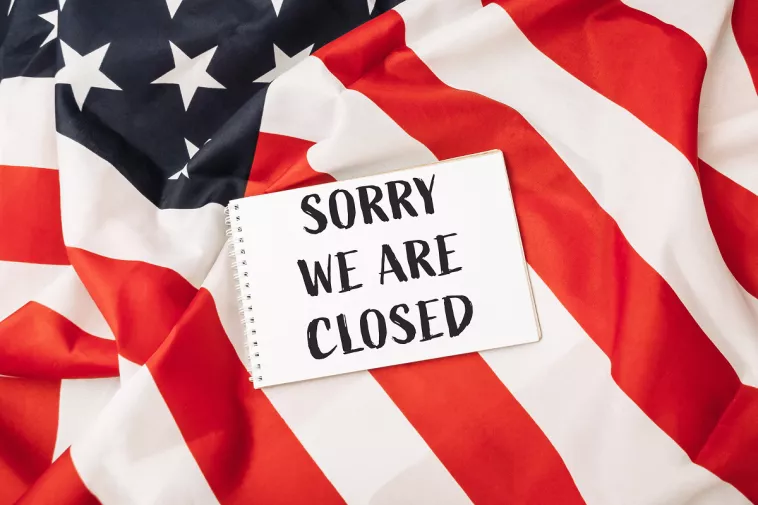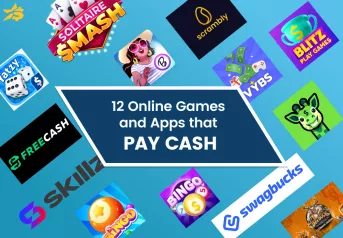
Government Shutdown Crisis: Emergency Financial Options When Federal Pay Stops
When talk of a government shutdown starts circulating, it can feel unsettling — especially for federal employees, contractors, and families living paycheck to paycheck.
Let’s break down what a government shutdown means, who’s impacted, and the financial resources available to help you stay afloat until funding resumes.
KEY TAKEAWAYS
- Shutdowns are temporary, but they can disrupt pay and benefits for millions.
- Most essential services like Social Security and SNAP continue without interruption.
- Knowing what to expect — and where to find help — can reduce stress.
⚠️ Urgent update: SNAP benefits affected
For the first time in history, SNAP will be suspended starting November 1, 2025. If you're affected, call 211 to locate emergency food assistance.
What is a government shutdown?
A government shutdown happens when Congress doesn’t pass a federal budget or stopgap funding in time. When that happens, many federal operations either slow down or stop altogether.
Essential services like air traffic control and law enforcement keep running, but non-essential workers may be furloughed without pay.
Since 1981, there have been several minor shutdowns — but the longest one (December 2018 to January 2019) lasted 35 days. While federal employees typically receive back pay, contractors and gig workers connected to government projects may not.
Who keeps getting paid — and who doesn’t?
A government shutdown impacts people differently depending on how they’re employed:
- Furloughed federal employees: Non-essential government workers are sent home without pay.
- Essential workers: Many military, TSA, and law enforcement roles keep working, sometimes with a delay in pay.
- Federal contractors: Payments may pause with no guarantee of back pay.
- Others affected: Businesses and organizations tied to government contracts, like local vendors, airport services, or federal grant programs, can also feel the pinch.
Understanding your employment classification can help you better plan for a shutdown.
How a shutdown disrupts daily life and finances
Beyond a delayed paycheck, shutdowns can have ripple effects:
- Loan and financial delays: Applications for mortgages, permits, or loans may stall.
- Travel and recreation: National parks, museums, and monuments often close.
- Local economies: Areas with a high concentration of government workers often see reduced spending.
- Household budgets: It becomes harder to cover everyday costs like rent, childcare, and groceries.
Will programs like SNAP, WIC, or Social Security stop?
Most federally administered benefits keep going during a shutdown:
- Social Security, Medicare, and Medicaid: Payments are typically uninterrupted.
- SNAP and WIC: If funding was already approved, benefits generally continue — but new applications or state-administered programs could experience delays.
- Housing assistance: Current Section 8 recipients may stay covered, but expect processing delays for new applications.
For the most up-to-date info, visit official federal resources like the U.S. Department of Agriculture SNAP site and Social Security Administration.
Who is most vulnerable during a shutdown?
Some groups are more likely to feel the financial impact:
- People living paycheck to paycheck
- Families with little to no emergency savings
- Renters and homeowners with monthly payments
- Hourly employees, gig workers, and contractors tied to federal projects
If you fall into one of these groups, it helps to take proactive steps before a shutdown hits.
Emergency financial resources you can turn to
National and community aid
- United Way 211: Call 211 for local help with food, shelter, and bills.
- Feeding America: Offers free meals and groceries through a national network of local food banks.
- Temporary Assistance for Needy Families (TANF): Temporary cash assistance for eligible low-income families.
Support for federal workers and contractors
- Credit unions for federal employees: Many offer short-term loans, no-interest advances, or furlough assistance programs.
- Union relief funds: Certain employee unions provide emergency aid to members during shutdowns.
- Agency-specific assistance: Some federal agencies maintain hardship funds for furloughed staff.
Short-term cash and loan options
- Paycheck advance apps: Look for trusted, low-fee apps if you need immediate cash for smaller needs.
- Installment or personal loans: Longer repayment terms can make it easier to budget payments.
- Avoid predatory lending: Dishonest or manipulative lenders can make a tough situation worse.
Help with bills payments
- Utility assistance: Ask about payment plans, extensions, or winter hardship programs to cover utility expenses.
- Mortgage or rent support: Communicate with your lender or landlord about deferments or payment options.
- Student loans: Federal student loans may be paused under certain conditions. Visit the Federal Student Aid site for more information.
Temporary income opportunities
- Side gigs: Rideshare, delivery apps, or freelance work can help bridge the gap.
- Seasonal work: The retail and service industries often hire temporary workers during peak periods.
How to prepare for a government shutdown
If a shutdown seems likely, take steps to protect your finances:
- Create a bare-bones budget for the essentials
- Pause non-essentials like subscriptions
- Turn off any automatic payments
- Reach out to your landlord, utility companies, and creditors early
- Locate your nearest food banks and community resources
What not to do during a government shutdown
Some “quick fixes” could come with long-term consequences. Try to avoid:
- Payday Loans: While we’d normally recommend these for short-term needs, during a shutdown when your next paycheck is uncertain, they’re probably not the best fit.
- Loan stacking: Taking out several loans at once from multiple lenders can create complicated repayment schedules, making it easy to fall behind on payments.
- Ignoring financial obligations: Open communication with creditors is always better than silence.
- Credit card cash advances: These often carry higher fees and interest rates than other options.
Instead, reach out to trusted financial institutions and community programs. If you do need additional support, our team can help you understand available options.
Will I get back pay?
If you’re a federal employee, you’ll likely be paid retroactively once funding resumes. Contractors, however, are not guaranteed back pay, so it’s important to plan for a gap in income.
How long the shutdown lasts determines how long you may have to wait to get paid.
Final takeaway: You’re not alone, and help is available
A government shutdown can be tough, but you don’t have to face it alone. From national resources like TANF and SNAP to local food banks and credit unions, help is out there.
Taking small steps, like cutting costs, reaching out for support, or picking up temporary work, can help you get through it. You’ve made it work before. You can do it again.
Notice: Information provided in this article is for informational purposes only. Consult your attorney or financial advisor about your financial circumstances.


